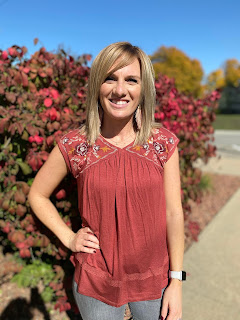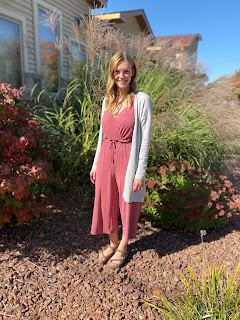T.M.

Tara.Marshall. Introducing to you.. our newest employee @ EHS! Here is a little 'get to know ya' about Tara, our newest employee. She will be working with the Doc's in the exam rooms as a scribe. Hi All! My name is Tara, and I was born and raised in Knoxville, and graduated with the class of 2009. My husband Jared works at 3M and we have two beautiful children, Carter (9) and Jadyn (8). In my freetime, I enjoy watching the kids in their sporting events, taking our two dogs Tank (lab) and Jax (shih tzu poodle) on walks, reading, and last, but certainly not least, shopping :) I'm looking forward to meeting all of our patients at Eye Health Solutions :) 1. What is your favorite movie of all time? Any Michael Myers movie- Halloween time is definitely my favorite! 2. If you had to pick one song to sing karaoke to... what would it be? Pick just one?! " I Wanna Dance with Somebody"-Whitney Houston 3. How long does it take you to get ready in the a.m.? Too lo
